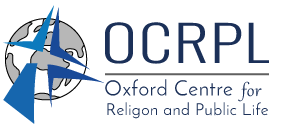During the civil war in Sudan that led eventually to the formation of South Sudan, 30,000 boys walked out of Sudan to Ethiopia. Following education in the USA a number have returned to give leadership to the new nation. This is the story of one of them, Bishop Zechariah Manyok Biar, Suffragan Bishop of Wanglei in the Episcopal Church of Sudan. Bishop Zechariah is a participant in the OCRPL/Stellenbosch Ph D programme.

Zachariah is tall, dark and now wearing a purple clerical shirt looked anything but a former revel of the Sudan People’s Liberation Army (SPLA). Global Christian News wanted to know about the miracle that was the story of the life of Zachariah and how God saved the 12-year-old boy in Sudan, then, who now is a bishop.
When war broke out in Sudan in 1983 boys, “between 7 and 17 years of age who were separated from their families.” About 30,000 boys fled the fighting. They “trekked enormous distances over a vast unforgiving wilderness, seeking refuge.” Many died on the way as they “crossed from the Sudan into Ethiopia and back,” according to a UNICEF account.
“Our generation had only known war for forty years. I was born in 1975 during a period of peace from 1972-1983. I remained at home till I was 12 when a new outbreak of war became really serious. The government of Sudan was fighting the Sudan People’s Liberation Army and did not spare civilians. They attacked our villages and so in 1987 we fled and walked to Ethiopia,” said Zachariah.
The days to trekking in the wild harsh terrain of the region took its toll on the vulnerable children. “Some children died on the way,” he continued. “When we arrived in Ethiopia we had to depend on the assistance of the Ethiopian Government. Some children were homesick. But we kept going with the thought that nothing can be bad forever and things will be better. When children died, we took them to what was only a dumping area for dead bodies.”
After a while, he said the news got out and US Aid visited and gave them clothing.

The stay in Ethiopia was short lived, Zachariah said: “In 1991 the Government of Mengistu was toppled. The new government began attacking the towns where we were and chased us to the border of Ethiopia and Sudan. The border was a river and I swam across, but some children could not swim and after jumping in they disappeared.
“We moved into Southern Sudan where it was the rainy season. We had no food and could not protect ourselves from the rain and water so we were hungry, cold and shivering. But the hot dry sun would dry us out during the day. We moved in to the bush to find food and eat wild fruit. After six weeks Dakota airplanes came over and dropped bags of maize and beans,” Zachariah recounted.
For a short while, the boys seemed to have some refuge and Zachariah said, “We started schools under the trees.” But that didn’t last long. “The government of Sudan attacked again so we moved to the border with Kenya. Then there was a split in the SPLA between John Garang and Riek Machar.”
Frustrated and wanting to do something about the war, he said, “So I decided not to stay in school but joined the SPLA. I became a chaplain who fought, who took the word of God into the army.
“I had become a Christian when I was taken to an island in the Sudd swamp by my cousin in 1985 to stay there and eat fish for at least two months. It was there that I became a Christian. My elder brother was already a Christian because he was a student and I was not. Christianity was regarded a religion of students. When we came back from the island, my mother who was not a Christian at the time, resisted my conversion to Christianity, arguing that Christianity was a religion of students. Since I was not a student, she argued that there was no justification for my conversion to Christianity.” Zachariah recalled.
“Even though I did not stop going to Church, which was far away from our home, I could not be baptized until I went to Ethiopia in 1987. I was baptized in Ethiopia in 1989. I became an army chaplain in 1994. My mother and the rest of family became Christians in 1988.
Though now a rebel, Zachariah “became a chaplain in the army because the SPLA thought Christians were cowards. For that reason, churches were not respected and commanders could not go to church. I decided to bring being a Christian into the army. I had a machine gun but I also told the soldiers not to rape women or kill older people or children. If a soldier was dying I would pray with them. We were strange chaplains but following a particular engagement we won respect because of our bravery.” He said
With the intervention of the international community, Zachariah, with many other ‘lost boys of Sudan’ were eventually pulled out of the conflict and sent back to school in 1999.

“I first got a diploma from the Timothy Training Institute in Johannesburg, South Africa. I went to Uganda where I got a bachelor’s degree. I then went to the USA and got two Masters degrees. Back in South Sudan I worked as a director in a Government department and last year I was consecrated as a bishop.
The Rt Rev Zechariah Manyok Biar is Suffragan Bishop in the Wanglei Area of the Diocese of Twic East, Episcopal Church of Sudan.
Hassan John is West Africa Editor of GCN and a priest of the Anglican Diocese of Jos. Interview transcription by Chris Sugden


